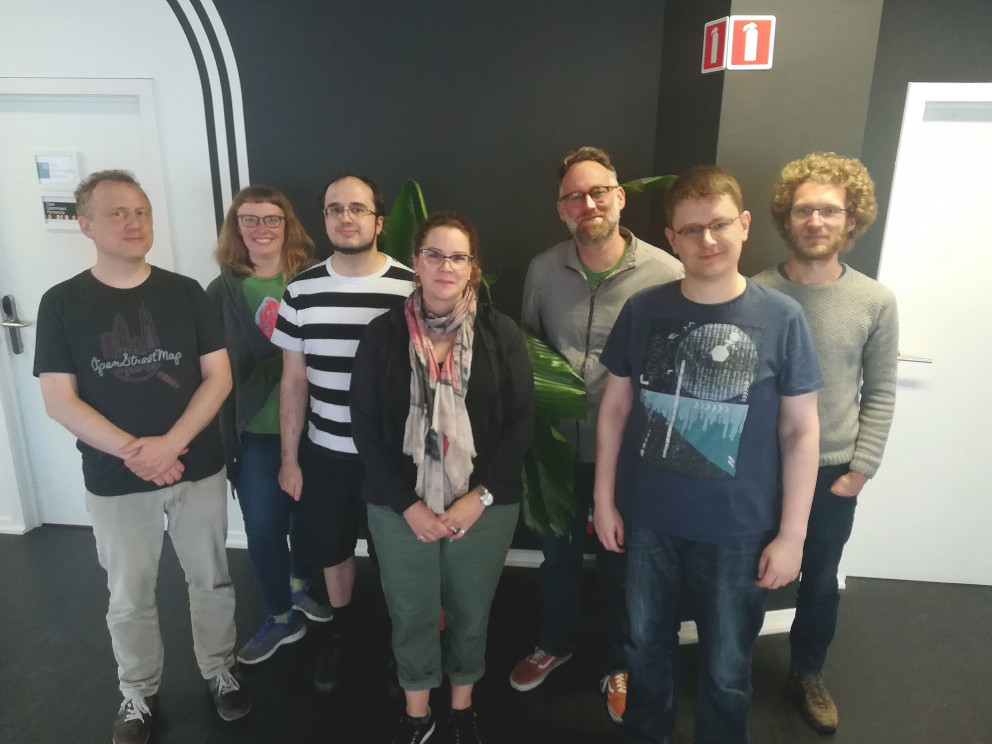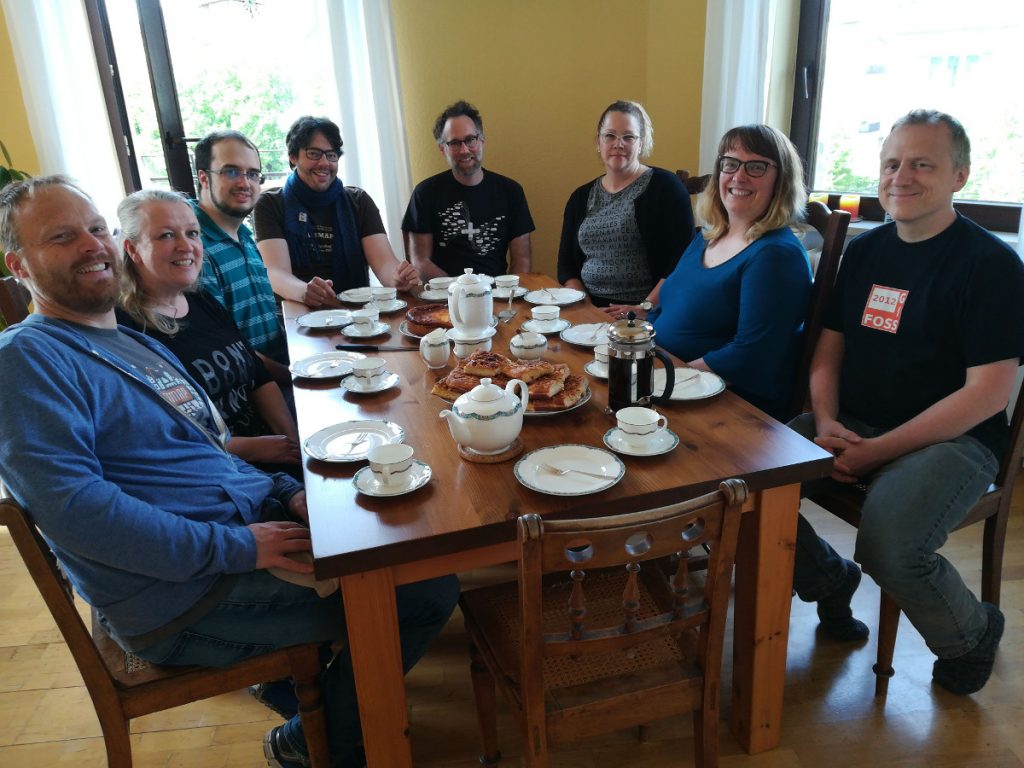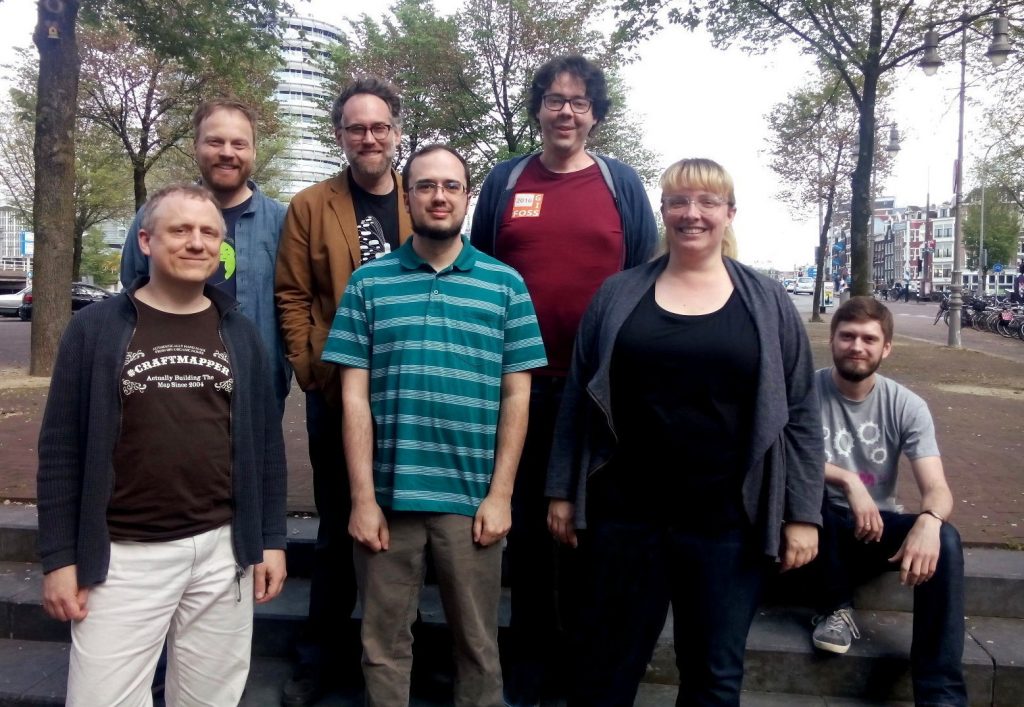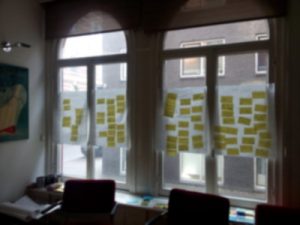
The members of the OpenStreetMap Foundation (OSMF) will vote to elect a new board in December. Voting will start on 2 December 2023 at 16:00 UTC and the results will be announced on 9 December 2023, during the 2023 Annual General Meeting.
Available seats in this election
There will be at least three board seats available in this election: of Guillaume Rischard, Mikel Maron and Roland Olbricht, whose board terms are ending. Meanwhile, the terms of Arnalie Vicario, Craig Allan, Mateusz Konieczny and Sarah Hoffmann will continue. There are seven seats on the foundation board.
Please note that Guillaume Rischard and Roland Olbricht have decided to rerun. Mikel Maron cannot rerun, according to the Foundation’s Articles of Association. All board members are volunteers.
Who has the right to vote
All normal members [1] and associate members [2] (including members who joined via the active contributor membership program) have the right to vote provided that:
- they are a member or associate member throughout the period of 90 days prior to the date on which the meeting is held; and
- their membership account is not in arrears 7 days prior to the date on which the general meeting is held and
- they are a natural person (human).
[1] Normal members provide their full residential address and can vote on all General Meeting resolutions. Their residential address may be disclosed to other members.
[2] Associate members provide just their country of residence - which may also be disclosed to other members - and can vote - but not on all General Meeting resolutions. Additionally, they cannot be board candidates.Please note that “90 days” means that the start date of your current membership has to be before the beginning of Sunday 10 September 2023 in UTC, if the Annual General Meeting takes place on 9 December 2023, as scheduled.
If you want to vote and you have an OSM Foundation membership which ends before the 2023 General Meeting, please make sure to renew it in advance. To find the end date of your membership, or the type, you can check the email you received during your previous membership renewal. If you can’t find the email, or have not received the automatic reminder about membership renewal, you could also ask the volunteers of the Membership Working Group.
Board rules, responsibilities and why run
Please read the links on the OSM wiki to find out about the board rules, responsibilities and why run.
A lot of the foundation’s work is done by the volunteers of our working groups, and if you want to help the Foundation, you can also look at joining those.
A few of the current and past board members have mentioned that the thought of being a board candidate did not cross their mind until it was suggested to them. So, you might want to think if you’d like to run for the board or to suggest being a candidate to others.
Eligibility criteria for board candidates
Any person may be elected to become a board member, provided that:
- They are normal OSMF members 28 days before the General Meeting, and
- they have been a normal member or associate member during the full 180 days [3] before the General Meeting, and
- are willing to act as a board member, and
- are permitted by law to do so.
[3] 180 days: OSMF membership start date before 12 June 2023, if the Annual General Meeting takes place on 9 December 2023, as scheduled. If you are an Associate member and you satisfy the rest of the criteria, it is possible to change your membership type to Normal. Please contact the volunteers of the Membership Working Group and provide your residential address.
Resolutions proposed by OSM Foundation members
OSM Foundation members can submit resolutions and ask the membership to vote on them. The resolutions need to be supported by at least 5% of members eligible to vote [4], in order to be added to the ballots. Please read: Companies Act 2006: Members’ power to require circulation of written resolution. The deadline for providing the supported resolutions will probably be 25 October 2023. Please check the key dates on the OSM wiki in the coming weeks (link below).
[4] If the vote would take place today, you would need the support of at least 76 OSMF members eligible to vote. Please note that this number will change.Resources about the 2023 board election and Annual General Meeting
The main two pages that will be enriched in the coming weeks with information about the 2023 board election and the Annual General Meeting are:
- 2023 election on the OSM wiki – to be enriched.
- 2023 Annual General Meeting on the OSMF website – to be enriched.
If you are an OSM Foundation member, you can also keep an eye on osmf-talk (the OSMF members’ mailing list) for updates. As an OSMF member, you can register to osmf-talk here (please use the email address associated with your OSMF membership) and the archive of the mailing list is here.
If you would like to read how the election process usually works, you can check the pages for the previous election on the OSM wiki and the OSMF website.
About the OpenStreetMap Foundation
The OpenStreetMap Foundation is a not-for-profit organisation, formed to support the OpenStreetMap Project. It is dedicated to encouraging the growth, development and distribution of free geospatial data for anyone to use and share. The OpenStreetMap Foundation owns and maintains the infrastructure of the OpenStreetMap project, is financially supported by membership fees and donations, and organises the annual, international State of the Map conference. Our volunteer Working Groups and small core staff work to support the OpenStreetMap project. Join the OpenStreetMap Foundation for just £15 a year or for free if you are an active OpenStreetMap contributor.





